Filter by

A Sales Tax for Alberta Why and How
Drawing on policy analysis, recent history, personal experiences, and conversations with Albertans, former politicians, and senior public servants, contributors build a decisive case for why a sales tax is a more efficient tax than corporate or personal income taxes. They examine energy revenues, household incomes, and political support as well as opportunities for improving democracy and reduc…
- Edition
- -
- ISBN/ISSN
- 981771992978.01
- Collation
- -
- Series Title
- -
- Call Number
- 6 x 9, 240 pages
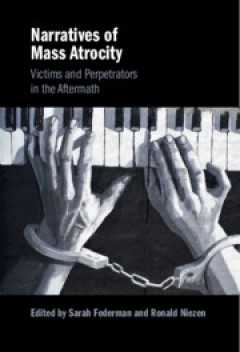
Narratives of Mass Atrocity: Victims and Perpetrators in the Aftermath
ndividuals can assume – and be assigned – multiple roles throughout a conflict: Perpetrators can be victims and, vice versa, heroes can be reassessed as complicit and compromised.
- Edition
- -
- ISBN/ISSN
- 9781009110693
- Collation
- -
- Series Title
- -
- Call Number
- T 364.15 FED n
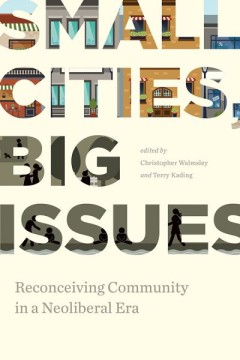
Small Cities, Big Issues Reconceiving Community in a Neoliberal Era
If local governments accept a social agenda as part of its responsibilities, the contributors to Small Cities, Big Issues believe that small cities can succeed in reconceiving community based on the ideals of acceptance, accommodation, and inclusion. With contributions by Lorry-Ann Austin, Jacques Caillouette, Graham Day, Robert Harding, Wendy Hulko, Paul Jenkinson, Kathie McKinnon, Sharlene…
- Edition
- -
- ISBN/ISSN
- 9781771991636.01
- Collation
- -
- Series Title
- -
- Call Number
- 6 x 9, 334 pages
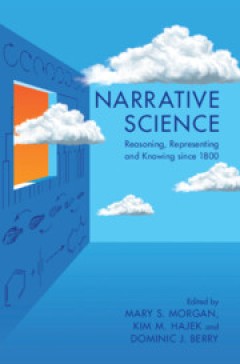
Narrative Science Reasoning, Representing and Knowing since 1800
Narrative Science examines the use of narrative in scientific research over the last two centuries. It brings together an international group of scholars who have engaged in intense collaboration to find and develop crucial cases of narrative in science. Motivated and coordinated by the Narrative Science
- Edition
- -
- ISBN/ISSN
- 9781009004329
- Collation
- -
- Series Title
- -
- Call Number
- T 501 MOR n

Music and the Queer Body in English Literature at the Fin de Siecle
Drawing on an ambitious range of interdisciplinary material, including literature, musical treatises and theoretical texts, Music and the Queer Body explores the central place music held for emergent queer identities in the late nineteenth and early twentieth centuries.Canonical writers such as Walter Pater, E. M. Forster and Virginia
- Edition
- -
- ISBN/ISSN
- 9781108989541
- Collation
- -
- Series Title
- -
- Call Number
- T 820.9 RID m c.1

Money-Pump Arguments
Suppose that you prefer A to B, B to C, and C to A. Your preferences violate Expected Utility Theory by being cyclic. Money-pump arguments offer a way to show that such violations are irrational.
- Edition
- -
- ISBN/ISSN
- 9781108754750
- Collation
- -
- Series Title
- -
- Call Number
- T 332.8 GUS m
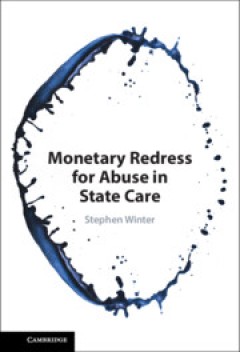
Monetary Redress for Abuse in State Care
Investigating a fast-developing field of public policy, Stephen Winter examines how states redress injuries suffered by young people in state care.
- Edition
- -
- ISBN/ISSN
- 9781009082662
- Collation
- -
- Series Title
- -
- Call Number
- T 362.76 WIN m c.1
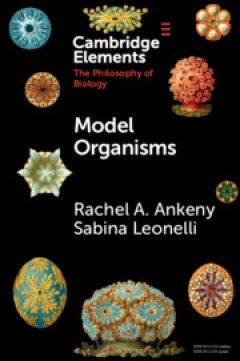
Model Organisms
This Element presents a philosophical exploration of the concept of the 'model organism' in contemporary biology.
- Edition
- -
- ISBN/ISSN
- 9781108593014
- Collation
- -
- Series Title
- -
- Call Number
- T 578.7 ANK m c.1
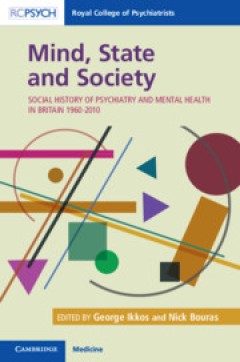
Mind, State and Society: Social History of Psychiatry and Mental Health in Br…
The present work emerged from more than a decade of conversations, co-organising events and co-authoring articles. Much of this has taken place through the Royal Society of Medicine (RSM) Psychiatry Section activities, especially at its programme on Psychiatry in Dialogue with Neuroscience Medicine and Society.
- Edition
- -
- ISBN/ISSN
- 9781911623793
- Collation
- -
- Series Title
- -
- Call Number
- T 362.209 IKK m c.1

Mind and Rights: The History, Ethics, Law and Psychology of Human Rights
Mind and Rights combines historical, philosophical, and legal perspectives with research from psychology and the cognitive sciences to probe the justifi cation of human rights in ethics, politics and law. Chapters critically examine the growth of the human rights culture, its roots in history and current human rights theories.
- Edition
- -
- ISBN/ISSN
- 9781316875520
- Collation
- -
- Series Title
- -
- Call Number
- T 341.48 MAH m c.1
 Computer Science, Information & General Works
Computer Science, Information & General Works  Philosophy & Psychology
Philosophy & Psychology  Religion
Religion  Social Sciences
Social Sciences  Language
Language  Pure Science
Pure Science  Applied Sciences
Applied Sciences  Art & Recreation
Art & Recreation  Literature
Literature  History & Geography
History & Geography